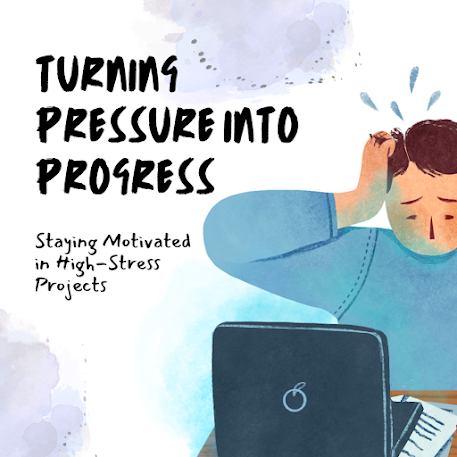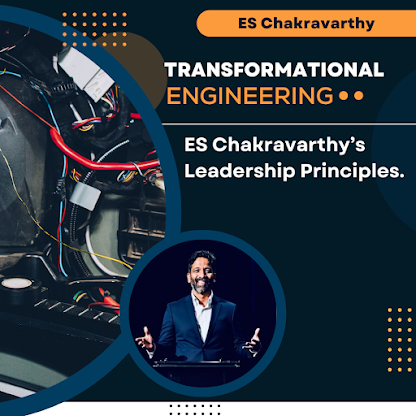Turning Pressure into Progress: Staying Motivated in High-Stress Projects
It is a fact that pressure is omnipresent in engineering and technology. Tight deadlines, demanding problems, client expectations, constantly changing technologies, and requirements pull the best professionals to their limits. The industry guru ES Chakravarthy always says that it is not the pressure that makes a career; it is how one acts under pressure. Motivation and focus in the face of stress can turn challenges into pathways for developmental opportunities.
The Nature of High-Stress Projects
Stress levels are even higher with great responsibilities in high-stress projects. The projects may be to launch a new product, to lead a large team, or even to address a vital business system failure: all of these are challenging one’s mental, emotional, and technical strengths. These are the moments that ES Chakravarthy has indicated as the times when ordinary technologists are differentiated from leaders of the future. In essence, what becomes apparent to the person is that pressure is not the problem but is a driver of results.
Mindset Matters: Shift from Panic to Purpose
Mindset is one of the most important things that ES Chakravarthy has shared in his teachings. Specifically, he helps young engineers change their view on stress from the perception of something negative to a possibility to compete for something. By adopting this perspective, one has a different outlook on things which may encompass how one solves problems. Actually, instead of being overwhelmed you start searching for solutions. You start avoiding the negative perspective such as focusing only on the possibility of failure.
Break Down the Big Picture
Anxiety in project work often stems from the sheer scale of the initiative. According to Chakravarthy, engineers should break their complex assignments into specific smaller subgoals to facilitate better progress. This approach enhances clarity, and the completion of subgoals fosters a positive psychological impact. Your numerous small accomplishments should be celebrated, as they build your motivation to continue moving forward.
Create a Support System
No engineer succeeds in isolation. Managing complex work tasks becomes easier with an established support network. ES Chakravarthy illustrates the importance of collaboration along with mentoring relationships and open dialogue when facing challenging situations. Consulting colleagues while seeking support or distributing responsibilities evenly helps reduce pressure and improve operations.
Focus on the Why
High-stress situations often lead to work-related priorities vanishing from consciousness. Engineering professionals should regularly return to their core motivation, according to Chakravarthy. Having a clear sense of your purpose enables pressure relief that revives your energy along with the ability to reach your goals.
Practice Self-Care and Time Management
Time management requires understanding that deadlines cannot eliminate rest and health needs. The concept of total growth advocated by Chakravarthy includes equal importance for mental and physical health along with professional achievement. The combination of efficient time organization with scheduled rest periods, along with a balanced work schedule, helps both concentrate better and prevents burnout.
Conclusion:
Pressure does not always create barriers, but it occasionally presents opportunities to achieve future targets. Implementing a proper mental approach and organizational plans, and obtaining supportive networks, enables someone to transform challenging situations into constructive developments. According to ES Chakravarthy’s mentorship lesson, stress should be transformed into personal growth, which leads to professional achievement. When working on challenging projects, you should maintain your stability as you push yourself toward advancement.


.png)

Comments
Post a Comment